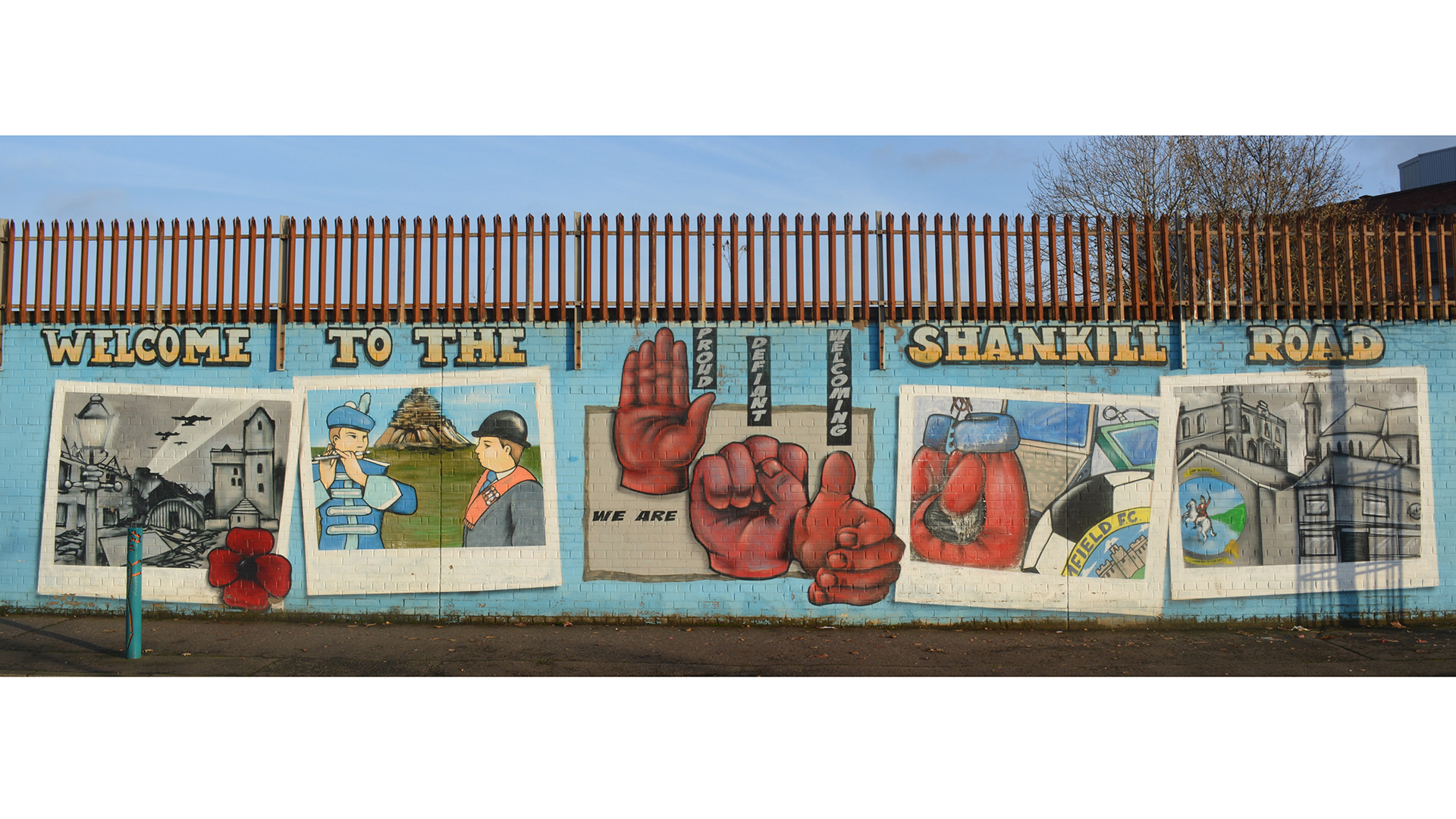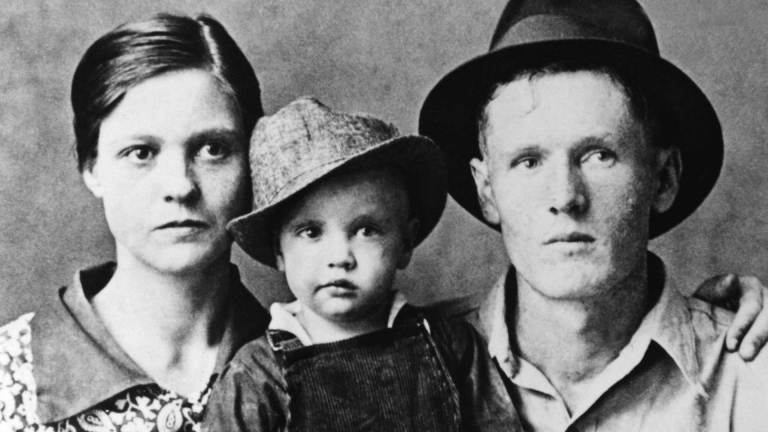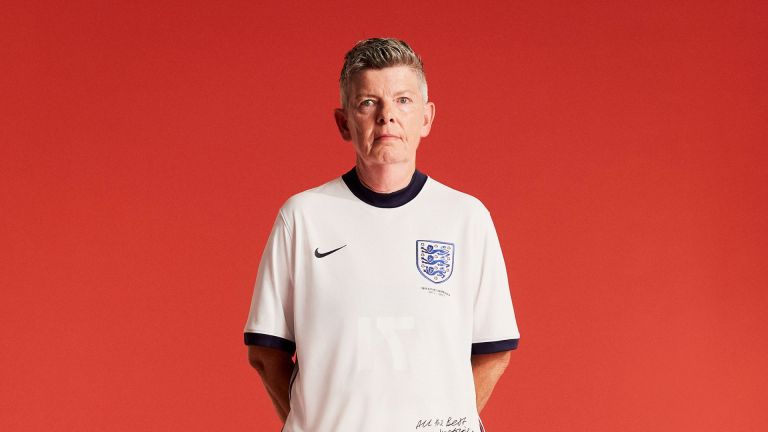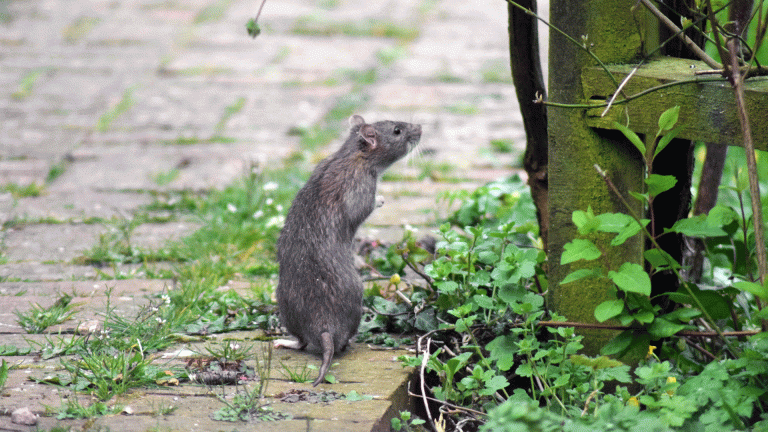I remember when I was around six sitting in a traffic jam near the Short Strand. My mum’s new boyfriend, Sammy – soon to be my stepdad – was driving and I was in the back seat. A group of young Catholics were instigating a mini riot. I watched a rock being hurled in my direction, hitting the door and narrowly missing me.
Sammy went crazy and jumped out of the car and ran after these kids leaving me alone in the car as the traffic lights went green. I don’t remember feeling scared or excited. I just kept on reading Oink. But it became in my memory “The Day Sammy Chased the Fenians Away”.
I also remember the first time my tribalism was seriously challenged. I was sitting with a group of older lads in the Boys Brigade talking about football. I was 11 years old and a Linfield fan. They were all around 14 and they supported Linfield’s rivals Glentoran. I was losing the argument and so in desperation I pointed out that Linfield were better than Glentoran because Linfield had no Catholics on their team but Jim Cleary – the captain of Glentoran – was a Fenian.
One boy said simply, “What’s wrong with being a Fenian?”
I gasped and spluttered in shock. It was like being asked what’s wrong with being a Nazi?
But I really had no answer. And it disturbed me I had no answer. What was wrong with being a Fenian?
Advertising helps fund Big Issue’s mission to end poverty
By the time I was 17, I was sick of it all. I wanted to be an actor. I dreamt of being a movie star in Hollywood, but I’d settle for a career as a leading man at the RSC. I’d no interest in Northern Irish drama. It seemed parochial and cliched. I loved The Godfather and GoodFellas, Hamlet and Richard III.
I wanted to study at a prestigious London drama school like RADA or LAMDA. But I didn’t get into RADA and I couldn’t afford a place at LAMDA. I settled for RSAMD – an excellent school but, in my mind, not as glamorous.
Even though it was the era of Trainspotting and Braveheart, Glasgow wasn’t cool to me. Maybe because it was too similar to Belfast – I always saw it as a bigger, crazier, uglier version of my home city.
I always intended to leave Glasgow as soon as I graduated – and I did – but something about the place always kept pulling me back. Maybe because it was easier being an unemployed actor there than in London or Belfast.
After years out of work, I started trying to write. At that time my best friend and mentor was Frank Deasy, a hugely revered screenwriter from Dublin who lived in Shawlands. We were introduced by James McAvoy who thought we’d hit it off.
I didn’t like Frank at first. Maybe because he was from Dublin and part of me was still holding on to the prejudices of my background. But I grew to adore him. (He’s sadly no longer with us. He died from cancer in 2009.) He always encouraged me to write about my loyalist background. He thought I had an original perspective on it. I was repelled by that notion. I wanted to write about serial killers and sex crimes. Eventually I took his advice and since then I haven’t stopped writing about the Troubles.
Advertising helps fund Big Issue’s mission to end poverty
But now I’m 47 years old. I’ve been writing about the same thing for 15 years now. The conflict is far behind me. Despite many attempts to escape, I still find myself in Scotland. I hardly ever get a chance to get back home. I’ve written a bunch of plays mainly about Northern Ireland. Two of them seem to stand out for most people: Cyprus Avenue and Ulster American. Both violent, funny and dark. And a sentimental heartwarming romcom for Sky Atlantic called The Lovers.
I was thinking recently it’s time to leave Northern Ireland behind psychologically as well as physically. I’ve said everything I want to say about the place. I want to talk about Scotland now, my new home. My life now raising a family in the suburbs of Glasgow.
But I can’t. Even when I write about Scotland the same themes keep emerging – hatred, violence, heritage, tribal rage. Murder and cultural identity. There’s no escaping it.
For my generation there was a pressure to write about the conflict. And equally there was a pressure not to write about it. With Derry Girls, Lisa McGee found a new path. She wrote about it and didn’t write about it at the same time. She put it in the background – because that’s what it was like for most people growing up there. I’ve tried to do something similar in most of my work. It’s there but not central.
In 1985, James Ellis and his moustache were right. The best work about the Troubles had yet to be written. As I sit here in 2023, I hope the generation of Northern Irish writers coming up now feel free to write about whatever they please.
Go wherever the voices in your head instruct you to go. Maybe there’s still better work about the Troubles yet to be written. Or maybe it’s time for all of us to write about something else. (But I say this while sporting a suspiciously Catholic beard, so perhaps my advice should be disregarded.)
Advertising helps fund Big Issue’s mission to end poverty
Ulster American will run at Riverside Studios, London, for eight weeks from 4 December 2023
Do you have a story to tell or opinions to share about this? We want to hear from you. Get in touch and tell us more.










